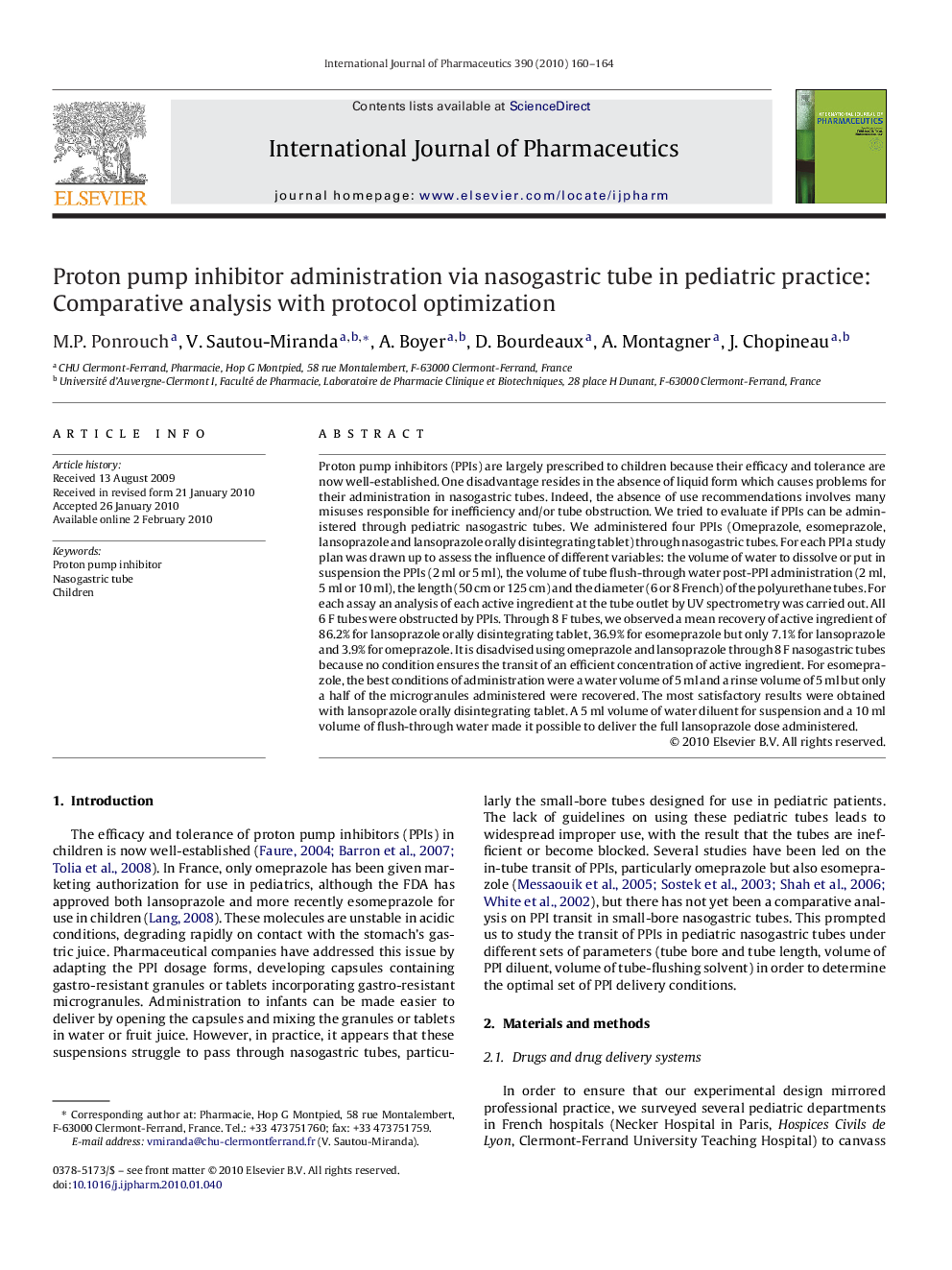| Article ID | Journal | Published Year | Pages | File Type |
|---|---|---|---|---|
| 2504168 | International Journal of Pharmaceutics | 2010 | 5 Pages |
Proton pump inhibitors (PPIs) are largely prescribed to children because their efficacy and tolerance are now well-established. One disadvantage resides in the absence of liquid form which causes problems for their administration in nasogastric tubes. Indeed, the absence of use recommendations involves many misuses responsible for inefficiency and/or tube obstruction. We tried to evaluate if PPIs can be administered through pediatric nasogastric tubes. We administered four PPIs (Omeprazole, esomeprazole, lansoprazole and lansoprazole orally disintegrating tablet) through nasogastric tubes. For each PPI a study plan was drawn up to assess the influence of different variables: the volume of water to dissolve or put in suspension the PPIs (2 ml or 5 ml), the volume of tube flush-through water post-PPI administration (2 ml, 5 ml or 10 ml), the length (50 cm or 125 cm) and the diameter (6 or 8 French) of the polyurethane tubes. For each assay an analysis of each active ingredient at the tube outlet by UV spectrometry was carried out. All 6 F tubes were obstructed by PPIs. Through 8 F tubes, we observed a mean recovery of active ingredient of 86.2% for lansoprazole orally disintegrating tablet, 36.9% for esomeprazole but only 7.1% for lansoprazole and 3.9% for omeprazole. It is disadvised using omeprazole and lansoprazole through 8 F nasogastric tubes because no condition ensures the transit of an efficient concentration of active ingredient. For esomeprazole, the best conditions of administration were a water volume of 5 ml and a rinse volume of 5 ml but only a half of the microgranules administered were recovered. The most satisfactory results were obtained with lansoprazole orally disintegrating tablet. A 5 ml volume of water diluent for suspension and a 10 ml volume of flush-through water made it possible to deliver the full lansoprazole dose administered.
